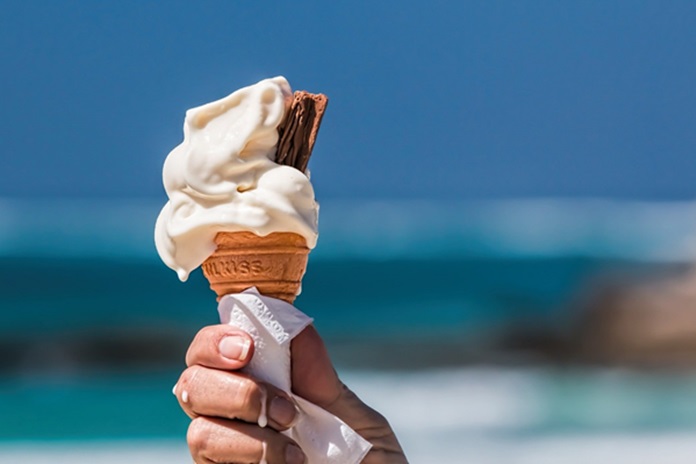August 19 is a day of indulgence and nostalgia for many as we celebrate National Soft Ice Cream Day. This delightful holiday is dedicated to the creamy, smooth, and perfectly swirled treat that has become a summer staple and source of joy for people of all ages. From its rich history to its modern-day variations, soft ice cream has carved a unique niche in the world of desserts.
What is The History of National Soft Ice Cream Day?
Ice cream dates back as early as 200 B.C., though there are no notable stories from that time. Some early mentions include Alexander the Great and Roman Emperor Nero, who both enjoyed flavored snow and ice.
After Marco Polo brought an ice cream-like recipe from the East to Italy, it became popular in Europe by the late 16th century. “Cream Ice” was served at the table of Charles I, and Catherine de’ Medici introduced it to France in 1553 after marrying Henry II.
Soft-serve ice cream, which later originated in America, was not introduced there until the 1740s. While it might have been enjoyed earlier, ice cream first appeared in U.S. advertisements in 1777.
George Washington’s estate at Mount Vernon had two ice cream pots, and he reportedly spent over $200 on ice cream during one summer!
It was not until the 1800s that ice cream became widely available to the public, thanks to new ice houses and ice cream manufacturing methods. By the mid-1800s, ice cream production and sales were booming, making it a part of American culture.
This led to the creation of soda fountains and sundaes. During World War II, ice cream was even provided to troops to boost morale, with floating ice cream parlors for sailors in the Pacific.

Soft ice cream emerged around World War II, but its exact origin is disputed. Carvel claims that their founder, Tom Carvel, created soft ice cream be an accident when his ice cream truck had a flat tire, causing the ice cream to melt and forcing him to sell it quickly. He later set up a successful shop selling this softened ice cream.
Dairy Queen also claims to have invented soft-serve ice cream in Illinois, where J.F. McCullough and his son perfected their formula and hosted a successful all-you-can-eat event.
Additionally, there are reports that Margaret Thatcher, the former U.K. prime minister, helped develop American soft-serve recipes while working as a chemist at a food manufacturer.
We can’t be certain how soft-serve ice cream was invented or what role Margaret Thatcher played in its development.
However, since those inventive scientists modified the centuries-old treat, soft-serve has become a popular choice at exciting venues like sporting events, amusement parks, and fairs. Today, many people have fond childhood memories of enjoying soft-serve ice cream.
| 60 A.D. (Nero’s Ice Cream) | Though ice cream is thought to have been around since 200 B.C., one of the earliest tales of it is between 50 and 80 A.D., when Emperor Nero of Rome sent runners to the mountains for snow, which he would then eat flavored. |
| 1934 (Carvel’s Flat Tire) | When Tom Carvel’s ice cream truck suffers a flat tire, he sells his melting ice cream in a parking lot — with huge success! |
| Late 1940s (Thanks, Margaret Thatcher) | The former U.K. prime minister works for a company dedicated to developing a soft-serve recipe compatible with American machines. |
| 1960s (Better Soft-Serve Machines) | Mechanized air pumps are added to the soft-serve machines, allowing better aeration and boosting sales for ice cream machine manufacturers. |
| 1950s (Illegal Soft-Serve) | Until the 1950s, the Minnesota legislature actually prohibited the sale of ‘ice milk’ from trucks, specifying that the dessert has to be sold prepackaged. |
5 Interesting Facts About Soft Ice Cream
- It’s the preferred frozen snack: According to one statistic, 70% of people choose soft-serve over hard ice cream.
- It’s healthier than ice cream: Soft-serve has 3–6% milkfat, while ice cream has 10–18%, making it a healthier option.
- It’s harder to make: Making soft-serve ice cream is more complicated than making hard ice cream due to the prepared liquid mix, precise machinery, and the art of dispensing.
- It’s fluffy: An average serving of soft-serve ice cream contains 35% air, making it fluffier than hard ice cream.
- It has different names: In parts of Europe, it’s called ‘American ice cream.’ In Greece or Romania, you might order ‘machine ice cream,’ while in Ireland, you’d ask for ‘soft whip.’
Conclusion
In conclusion, National Soft Ice Cream Day on August 19 is more than just a celebration of a beloved treat- it’s a tribute to the rich history and cultural evolution of soft-serve ice cream. From its ancient beginnings to its modern-day popularity, soft ice cream has captivated taste buds and sparked joy across generations.
Whether enjoyed at a local fair, amusement park or simply as a nostalgic indulgence, this creamy, airy delight continues to hold a special place in our hearts. As we savor each swirled cone, we also honor the inventive spirits and historical milestones that have made this sweet tradition possible. So, on National Soft Ice Cream Day, take a moment to relish not only the delicious treat but also the delightful journey that brought it to us.
Frequently Ask Question
Why is soft-serve ice cream sometimes called ‘American ice cream’?
In some parts of Europe, soft-serve ice cream is referred to as ‘American ice cream’ due to its popularization in the United States and its association with American food culture.
How has the technology for making soft-serve ice cream evolved?
Technological advancements, such as the addition of mechanized air pumps in the 1960s, have improved aeration and production efficiency. This has contributed to the growth and availability of soft-serve ice cream.
You may also like to read, National Ice Cream Pie Day – August 18, 2024
